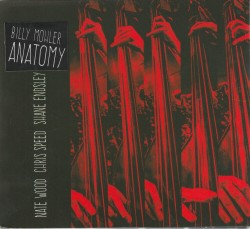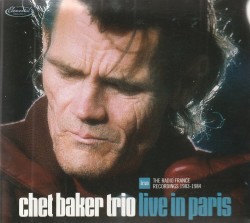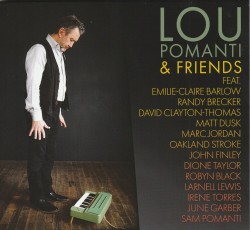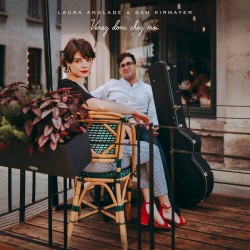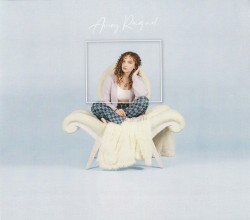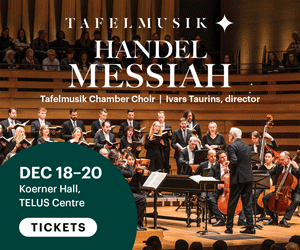They were supposed to have vanished when singers replaced big bands and become anachronisms once rock music combos became the de facto performance configuration. Yet large ensembles never went away. The challenge of blending multiple instrumental colours still fascinates composers and players of both notated and improvised music. Producing the proper balance between those two motifs, while taking advantage of every timbre produced by a large group of musicians is what characterizes the following CDs.
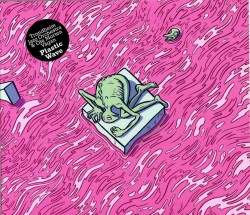 Using the 14-member Trondheim Jazz Orchestra, Norwegian bassist Ole Morton Vågan created Plastic Wave (Odin Records ODINLP 9578 odinrecords.bandcamp.com), a 2CD meditation on modern challenges and promises. Although the brief recitations by a poet are lost on non-Norwegian speakers, the compositions stand on their own. Taking advantage of the soprano tessitura of vocalist Sofia Jernberg, Vågan’s arrangements often blend her wordless lyricism with brassy fissures or placid reed tones. But groove is never sacrificed for gentleness. Throughout motifs, which suggest Charles Mingus at his bluesiest and Henry Mancini at his jazziest, are driven by Ståle Storløkken’s Hammond organ pumps, Kjetil Møster’s and Espen Reinertsen’s tenor saxophone vamps and Vågan’s own double bass stops. Tracks such as Critical Mass Distraction are notable for their unified polyphony, as the piece advances due to contributions from trumpeter Eivind Lønning’s shakes and triplets and violinist Ola Kvernberg’s barbed glissandi. Meanwhile, drummers Gard Nilssen and Håkon Johansen’s pops and rebounds emphasize the tune’s spikiness, confirmed by a coda of heightened brassiness. Extended or briefer tracks accentuate the unforced swing that underlies the program. Two of the more notable are Pickaboogaloo and the title track; moving along with double bass thumps and drum backbeats the former maintaining a funk tempo projected by contrapuntal reed and brass riffs. Soon though, a wailing plunger interlude from trombonist Øyvind Brække, paced by double time organ smears introduces a stop-time variant that matches portamento brass flutters and honks from the group’s four-person reed section, sliding from that dissonate interlude to a coordinated finale. Plastic Wave confirms tone construction. Gradually building up from unified voice, brass and reed expressions, Oscar Grønberg’s piano tinkles precede an arrangement that alternates intermittent drum beats, brass tongue sucking and puffs from Eirik Hegdal’s baritone saxophone with the layered harmonies of the introduction.
Using the 14-member Trondheim Jazz Orchestra, Norwegian bassist Ole Morton Vågan created Plastic Wave (Odin Records ODINLP 9578 odinrecords.bandcamp.com), a 2CD meditation on modern challenges and promises. Although the brief recitations by a poet are lost on non-Norwegian speakers, the compositions stand on their own. Taking advantage of the soprano tessitura of vocalist Sofia Jernberg, Vågan’s arrangements often blend her wordless lyricism with brassy fissures or placid reed tones. But groove is never sacrificed for gentleness. Throughout motifs, which suggest Charles Mingus at his bluesiest and Henry Mancini at his jazziest, are driven by Ståle Storløkken’s Hammond organ pumps, Kjetil Møster’s and Espen Reinertsen’s tenor saxophone vamps and Vågan’s own double bass stops. Tracks such as Critical Mass Distraction are notable for their unified polyphony, as the piece advances due to contributions from trumpeter Eivind Lønning’s shakes and triplets and violinist Ola Kvernberg’s barbed glissandi. Meanwhile, drummers Gard Nilssen and Håkon Johansen’s pops and rebounds emphasize the tune’s spikiness, confirmed by a coda of heightened brassiness. Extended or briefer tracks accentuate the unforced swing that underlies the program. Two of the more notable are Pickaboogaloo and the title track; moving along with double bass thumps and drum backbeats the former maintaining a funk tempo projected by contrapuntal reed and brass riffs. Soon though, a wailing plunger interlude from trombonist Øyvind Brække, paced by double time organ smears introduces a stop-time variant that matches portamento brass flutters and honks from the group’s four-person reed section, sliding from that dissonate interlude to a coordinated finale. Plastic Wave confirms tone construction. Gradually building up from unified voice, brass and reed expressions, Oscar Grønberg’s piano tinkles precede an arrangement that alternates intermittent drum beats, brass tongue sucking and puffs from Eirik Hegdal’s baritone saxophone with the layered harmonies of the introduction.
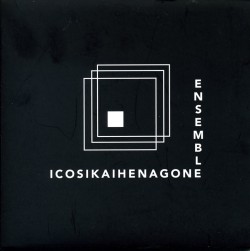 Another double bassist, Benjamin Duboc of Paris, composed and directed an even more ambitious project. Entitled Volumes II – Fiction Musicale et Chorégraphique – Création pour Grand Orchestre et Corps Actants (Dark Tree DT 15 darktree-records.com), Duboc’s Ensemble Icosikaihenagone (EI) runs through a single (nearly) 45-minute arrangement that brings to life this fictitious idea. Added to the 22 instrumentalists, who also vocalize, are the voices of three actors. With the text oscillating between imagery and sardonic comments, with voices often overlapping, it’s best to concentrate on the music. Beginning with near-silence, it’s not until after the first four minutes that a harmonized chord from seemingly every ensemble member moves in a linear fashion but without losing the exposition’s near-opaqueness. Although reed squeaks and string strokes are sometimes detached from the sonic murk, it isn’t until repeated kettle-drum-like throbs from percussionists Thierry Waziniak and Amélie Grould introduces a dramatic upsurge from reed players Jean-Luc Petit and Sylvain Kassap, soon followed by Émilie Aridon-Kociołek’s reflective keyboard interlude, fully define the musical program. Brassy triplets from trumpeters Jean-Luc Cappozzo and Franz Hautzinger join with the seven string players for a crescendo of undifferentiated timbres amplified with expressions from two female and one male voice. These fragments emphasize the composition’s two contrapuntal currents: dissonant footfall-like tongue slaps from the reeds and romantic glissandi from violinists Mathias Naon and Patricia Bosshard. Confirming his manipulations of low pitches Duboc’s next section matches Dorian Marcel’s and Sébastien Beliah’s percussive double bass motifs to Diemo Schwarz’s electronic samples which interject mariachi-like brass, Latin dance, waltz music snatches and hooting voices. The sampled voices and electronic wave forms continue in the following sequence as they’re toughened with Christiane Bopp’s and Alexis Persigan’s portamento trombone slurs, anvil-hard percussion smashes, percussion slaps and wordless bel-canto vocalizing. Reaching another polyphonic crescendo, the voices, electronic buzzes and trumpet triplets fade to silence. Now suspended in time, ones wonder how Volumes I and Volumes III sound.
Another double bassist, Benjamin Duboc of Paris, composed and directed an even more ambitious project. Entitled Volumes II – Fiction Musicale et Chorégraphique – Création pour Grand Orchestre et Corps Actants (Dark Tree DT 15 darktree-records.com), Duboc’s Ensemble Icosikaihenagone (EI) runs through a single (nearly) 45-minute arrangement that brings to life this fictitious idea. Added to the 22 instrumentalists, who also vocalize, are the voices of three actors. With the text oscillating between imagery and sardonic comments, with voices often overlapping, it’s best to concentrate on the music. Beginning with near-silence, it’s not until after the first four minutes that a harmonized chord from seemingly every ensemble member moves in a linear fashion but without losing the exposition’s near-opaqueness. Although reed squeaks and string strokes are sometimes detached from the sonic murk, it isn’t until repeated kettle-drum-like throbs from percussionists Thierry Waziniak and Amélie Grould introduces a dramatic upsurge from reed players Jean-Luc Petit and Sylvain Kassap, soon followed by Émilie Aridon-Kociołek’s reflective keyboard interlude, fully define the musical program. Brassy triplets from trumpeters Jean-Luc Cappozzo and Franz Hautzinger join with the seven string players for a crescendo of undifferentiated timbres amplified with expressions from two female and one male voice. These fragments emphasize the composition’s two contrapuntal currents: dissonant footfall-like tongue slaps from the reeds and romantic glissandi from violinists Mathias Naon and Patricia Bosshard. Confirming his manipulations of low pitches Duboc’s next section matches Dorian Marcel’s and Sébastien Beliah’s percussive double bass motifs to Diemo Schwarz’s electronic samples which interject mariachi-like brass, Latin dance, waltz music snatches and hooting voices. The sampled voices and electronic wave forms continue in the following sequence as they’re toughened with Christiane Bopp’s and Alexis Persigan’s portamento trombone slurs, anvil-hard percussion smashes, percussion slaps and wordless bel-canto vocalizing. Reaching another polyphonic crescendo, the voices, electronic buzzes and trumpet triplets fade to silence. Now suspended in time, ones wonder how Volumes I and Volumes III sound.
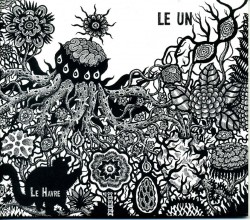 Interest in large-scale improvisation appears to fascinate French musicians, since six months before the EI disc was recorded, the 24-member Le Un troupe made its album. Coincidentally organized by David Chiesa, another double bass player, Le Havre (UnRec R 21 unensemble.bandcamp.com/album/le-havre) finds the orchestra, with a similar blend of reeds, brass, strings, percussion and electronics working its way through five group compositions over 65 minutes. The performances can be low key and slow moving or aggressive and rapid. But whether a tune’s horizontal progress is spurred by, for instance, Claire Bergerault’s accordion shakes or pianist Sophie Agnel’s key clips, overblowing and circular breathing from the four reed players, or staccato stops from the eight plucked or bowed strings, group affiliations and counterpoint always supersede singular instrumental spots. Vocalized yells, electronic drones, reed yelps and brass triplets have their place but are balanced and layered. Chiesa’s preference for low pitches means that a track such as Unité Nodale 8.2 reaches a climax at mid-point as double bass pumps preface a defining sequence where every one of the instruments’ tones, pops, cries, thumps and squeaks in unison, with bell tree shakes as a respite. Unité Nodale 11.2 and Unité Nodale 3.1, the introductory and concluding salvos, express this strategy at greatest length. On the first, affiliations from tremolo accordion brush up against thick double bass stops, mooing reeds and trumpeter Christian Pruvost’s half-valve expressions, reaching a crescendo of miasmatic blending. This mixture bypasses stuttering rips from the trumpeter and trombonist Patrick Charbonnier plus col legno string sweeps to reach a contrapuntal climax of intermittent piano clips and thumping ruffs from percussionists Camille Emaille and Benoit Kilian. That’s until spiccato string shakes, brass scoops and vocalized bel canto sighs sail across the lower pitches for a finale. These alternations from complete freedom to integration are confirmed with Unité Nodale 3.1 although here the reverberating metallic pressure and vibrating sibilation from Pascal Battus’ rotating surfaces and Jérôme Noetinger and Lionel Marchetti’s electronics are more prominent. Among the concentrated timbres of drones, pops, slaps and shakes dualism is set up between pairs such as Nina Garcia’s guitar strums and saxophonist Michel Doneda’s wailing split tones, or as multiple circular breathing abuts swift string glissandi. Ascending to a mesh of electroacoustic output, the cumulative tone ascends in pitch and loudness until it shakes away.
Interest in large-scale improvisation appears to fascinate French musicians, since six months before the EI disc was recorded, the 24-member Le Un troupe made its album. Coincidentally organized by David Chiesa, another double bass player, Le Havre (UnRec R 21 unensemble.bandcamp.com/album/le-havre) finds the orchestra, with a similar blend of reeds, brass, strings, percussion and electronics working its way through five group compositions over 65 minutes. The performances can be low key and slow moving or aggressive and rapid. But whether a tune’s horizontal progress is spurred by, for instance, Claire Bergerault’s accordion shakes or pianist Sophie Agnel’s key clips, overblowing and circular breathing from the four reed players, or staccato stops from the eight plucked or bowed strings, group affiliations and counterpoint always supersede singular instrumental spots. Vocalized yells, electronic drones, reed yelps and brass triplets have their place but are balanced and layered. Chiesa’s preference for low pitches means that a track such as Unité Nodale 8.2 reaches a climax at mid-point as double bass pumps preface a defining sequence where every one of the instruments’ tones, pops, cries, thumps and squeaks in unison, with bell tree shakes as a respite. Unité Nodale 11.2 and Unité Nodale 3.1, the introductory and concluding salvos, express this strategy at greatest length. On the first, affiliations from tremolo accordion brush up against thick double bass stops, mooing reeds and trumpeter Christian Pruvost’s half-valve expressions, reaching a crescendo of miasmatic blending. This mixture bypasses stuttering rips from the trumpeter and trombonist Patrick Charbonnier plus col legno string sweeps to reach a contrapuntal climax of intermittent piano clips and thumping ruffs from percussionists Camille Emaille and Benoit Kilian. That’s until spiccato string shakes, brass scoops and vocalized bel canto sighs sail across the lower pitches for a finale. These alternations from complete freedom to integration are confirmed with Unité Nodale 3.1 although here the reverberating metallic pressure and vibrating sibilation from Pascal Battus’ rotating surfaces and Jérôme Noetinger and Lionel Marchetti’s electronics are more prominent. Among the concentrated timbres of drones, pops, slaps and shakes dualism is set up between pairs such as Nina Garcia’s guitar strums and saxophonist Michel Doneda’s wailing split tones, or as multiple circular breathing abuts swift string glissandi. Ascending to a mesh of electroacoustic output, the cumulative tone ascends in pitch and loudness until it shakes away.
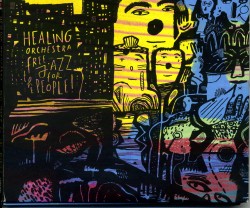 Unlike the massive ensembles put together by EI and Le Un, another French band, the Healing Orchestra (HO) presents its music as Free Jazz for the People! (LFDS 011 lefondeurdeson.com) with only 14 musicians. Despite the insurgent title, the two CDs combine free-form swinging with precise touch of emotional free jazz. Led by vibist/pianist Paul Wacrenier, who composed all the music, the strategic arrangements take advantage of every member’s talent. Pouvoir du Dedans which introduces the three-part title suite, features slurping and squeezed clarion variations from Kassap who has a less prominent role with Le Un. Overall his staccato tongue-slapping floats over lumbering group work then introduces a section characterized by throbbing bass lines from Victor Aubert and Blaise Chevalier and climaxes with a dual between violinist Sarah Colomb’s stretched spiccato and flutist Fanny Ménégoz’s peeping whistles. This dualism is used to striking effect on other tracks, especially when soloists pop out of concentrated orchestral motifs before integrating themselves back into the evolving themes. Confluences and L’Estaca suite’s final tracks illustrate this. The flutist’s traverse colouration; projected triplets from trumpeter Xavier Bornens; snorting and searing altissimo and vibrated split tones from saxophonists Arnaud Sacase (alto), Jean-François Petitjean (tenor) and Jon Vicuna (baritone); plus Wacrenier’s staccato vibes chiming and linear piano comping heard briefly but crucially. Personalizing the packed group improvisations, the narrative is loosened enough so that the shift to a happy dance rhythm makes the finale more freylekhs than free jazz. This same balance between freneticism and facility is expressed on Blooming In Tough Days, the extended finale of the Fraternity Suite. After exploring motifs encompassing folkloric harmonies by the three arco string players, gong-like resonations from the vibes and a touch of drone from concentrated timbres led by low-pitched piano notes, baritone sax honks and plucked bass thumps, the group settles into a groove. With portamento brass scoops, mellow violin glissandi and drummer Benoist Raffin’s press rolls, the suite and session exit with joyous vamps that are spirited, streetwise and sophisticated all at once.
Unlike the massive ensembles put together by EI and Le Un, another French band, the Healing Orchestra (HO) presents its music as Free Jazz for the People! (LFDS 011 lefondeurdeson.com) with only 14 musicians. Despite the insurgent title, the two CDs combine free-form swinging with precise touch of emotional free jazz. Led by vibist/pianist Paul Wacrenier, who composed all the music, the strategic arrangements take advantage of every member’s talent. Pouvoir du Dedans which introduces the three-part title suite, features slurping and squeezed clarion variations from Kassap who has a less prominent role with Le Un. Overall his staccato tongue-slapping floats over lumbering group work then introduces a section characterized by throbbing bass lines from Victor Aubert and Blaise Chevalier and climaxes with a dual between violinist Sarah Colomb’s stretched spiccato and flutist Fanny Ménégoz’s peeping whistles. This dualism is used to striking effect on other tracks, especially when soloists pop out of concentrated orchestral motifs before integrating themselves back into the evolving themes. Confluences and L’Estaca suite’s final tracks illustrate this. The flutist’s traverse colouration; projected triplets from trumpeter Xavier Bornens; snorting and searing altissimo and vibrated split tones from saxophonists Arnaud Sacase (alto), Jean-François Petitjean (tenor) and Jon Vicuna (baritone); plus Wacrenier’s staccato vibes chiming and linear piano comping heard briefly but crucially. Personalizing the packed group improvisations, the narrative is loosened enough so that the shift to a happy dance rhythm makes the finale more freylekhs than free jazz. This same balance between freneticism and facility is expressed on Blooming In Tough Days, the extended finale of the Fraternity Suite. After exploring motifs encompassing folkloric harmonies by the three arco string players, gong-like resonations from the vibes and a touch of drone from concentrated timbres led by low-pitched piano notes, baritone sax honks and plucked bass thumps, the group settles into a groove. With portamento brass scoops, mellow violin glissandi and drummer Benoist Raffin’s press rolls, the suite and session exit with joyous vamps that are spirited, streetwise and sophisticated all at once.
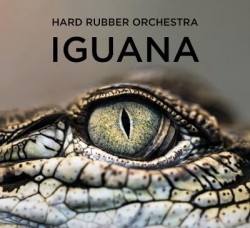 There are similar concepts from Vancouver’s Hard Rubber Orchestra (HRO) on Iguana (Hard Rubber DL hardrubber.com).The urbane arrangements by leader/trumpeter John Korsrud and others make it sound as if they’re being played by a larger group whereas the HRO is usually an octet. Always ready to emphasize the hard in the group’s name, the tracks often suggest how a metal band would sound playing all acoustic instruments. Instances of this are the extended Source Code, composed and featuring guitarist Harry Stafylakis and Korsrud’s Force Majeure. Built up from buzzy guitar and electric bass riffs and backbeat drumming from Eliot Doyle, the often agitated program still finds room for Mark Ferris’ Baroque-tinged mid-point violin sweeps before a polyphonic climax-crescendo with every instrument, especially the three hocketing and harmonized horns projecting at once. Based around a responsive and repeated chunky pattern by drummers Trent Otter and Kai Basanta, this background power pushes juddering and ascending chords from saxophonists Tom Keenlyside and Jon Bentley plus thickened brass portamento from Jim Hopson’s three low-pitched horns. Metal doesn’t replace melody however, since Korsrud’s From the Earth is a veritable piano concerto for Marianne Trudel. As her piano line evolves with Romantic overtones including waterfalls of notes and individual plinking, Mike Herriott adds to the Arcadian mood with overdubbed harmonized French horn, trombone, bass trombone and flugelhorn textures. Other tracks showcase everything from Vivian Houle’s alternating banshee-like or warbling vocalizing floating over electrified violin sweeps and paced by Ron Samworth’s guitar drones, to the stop-time title track that matches a Latin tinge with driving plunger brass and Samworth’s string slaps. Overall it appears the HRO has every part of the sound spectrum covered.
There are similar concepts from Vancouver’s Hard Rubber Orchestra (HRO) on Iguana (Hard Rubber DL hardrubber.com).The urbane arrangements by leader/trumpeter John Korsrud and others make it sound as if they’re being played by a larger group whereas the HRO is usually an octet. Always ready to emphasize the hard in the group’s name, the tracks often suggest how a metal band would sound playing all acoustic instruments. Instances of this are the extended Source Code, composed and featuring guitarist Harry Stafylakis and Korsrud’s Force Majeure. Built up from buzzy guitar and electric bass riffs and backbeat drumming from Eliot Doyle, the often agitated program still finds room for Mark Ferris’ Baroque-tinged mid-point violin sweeps before a polyphonic climax-crescendo with every instrument, especially the three hocketing and harmonized horns projecting at once. Based around a responsive and repeated chunky pattern by drummers Trent Otter and Kai Basanta, this background power pushes juddering and ascending chords from saxophonists Tom Keenlyside and Jon Bentley plus thickened brass portamento from Jim Hopson’s three low-pitched horns. Metal doesn’t replace melody however, since Korsrud’s From the Earth is a veritable piano concerto for Marianne Trudel. As her piano line evolves with Romantic overtones including waterfalls of notes and individual plinking, Mike Herriott adds to the Arcadian mood with overdubbed harmonized French horn, trombone, bass trombone and flugelhorn textures. Other tracks showcase everything from Vivian Houle’s alternating banshee-like or warbling vocalizing floating over electrified violin sweeps and paced by Ron Samworth’s guitar drones, to the stop-time title track that matches a Latin tinge with driving plunger brass and Samworth’s string slaps. Overall it appears the HRO has every part of the sound spectrum covered.
A comparison of the sparse HRO personnel with the many players involved elsewhere shows how modern large ensemble writing and playing can take many forms if creativity is in the right hands.
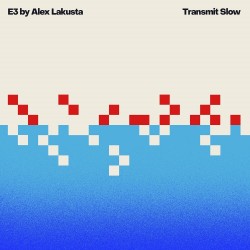 Transmit Slow
Transmit Slow

